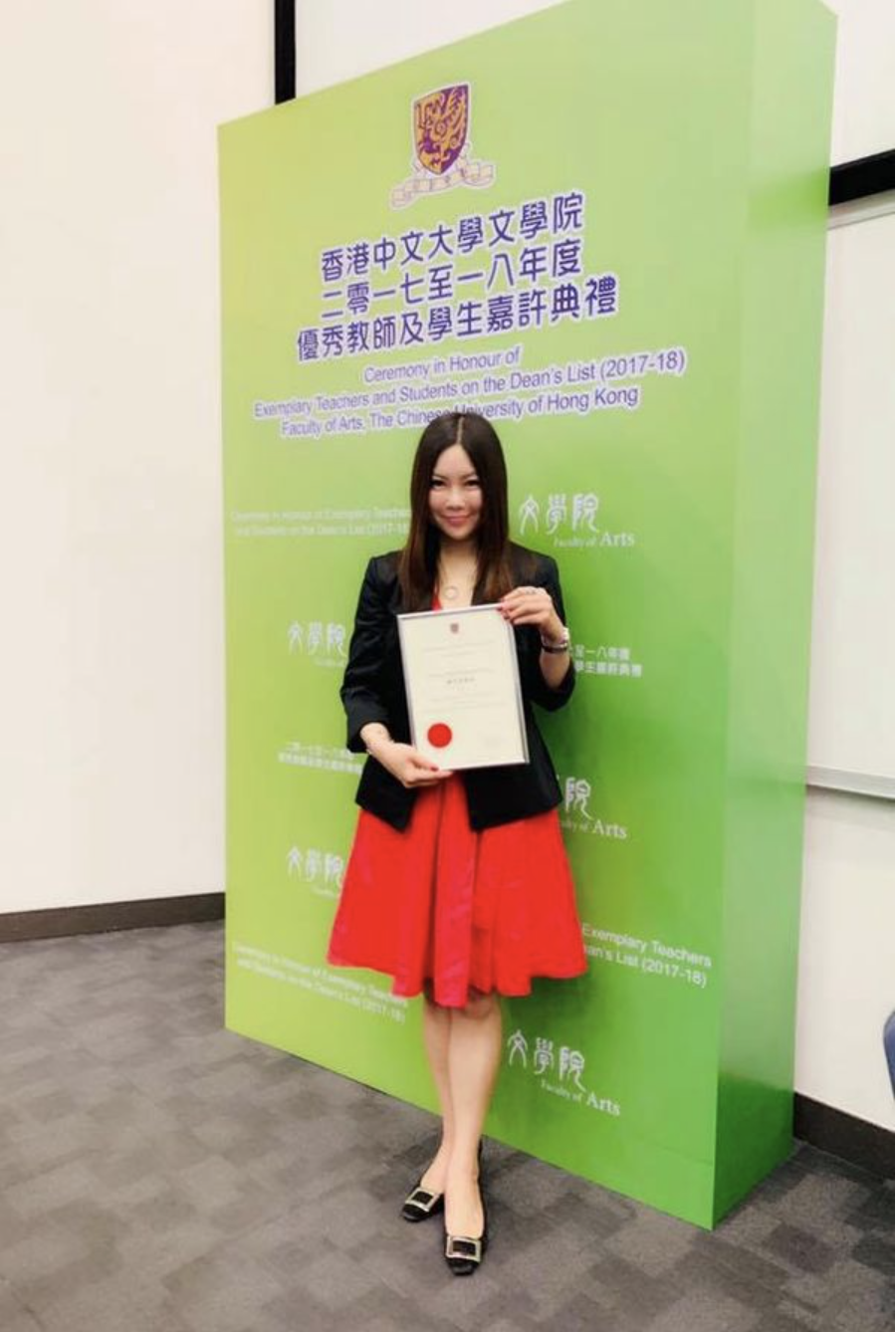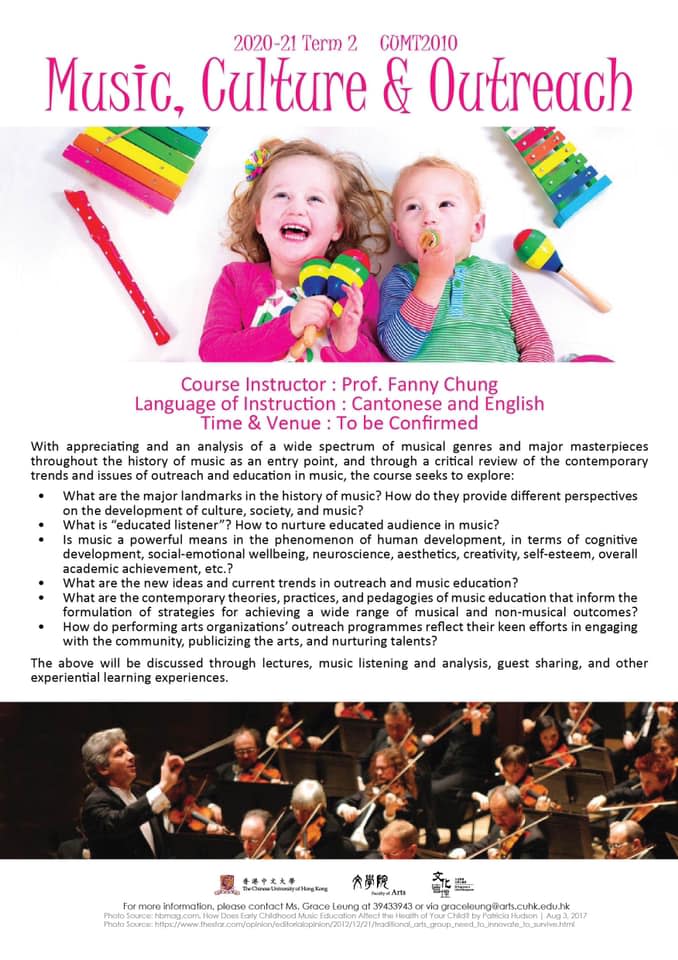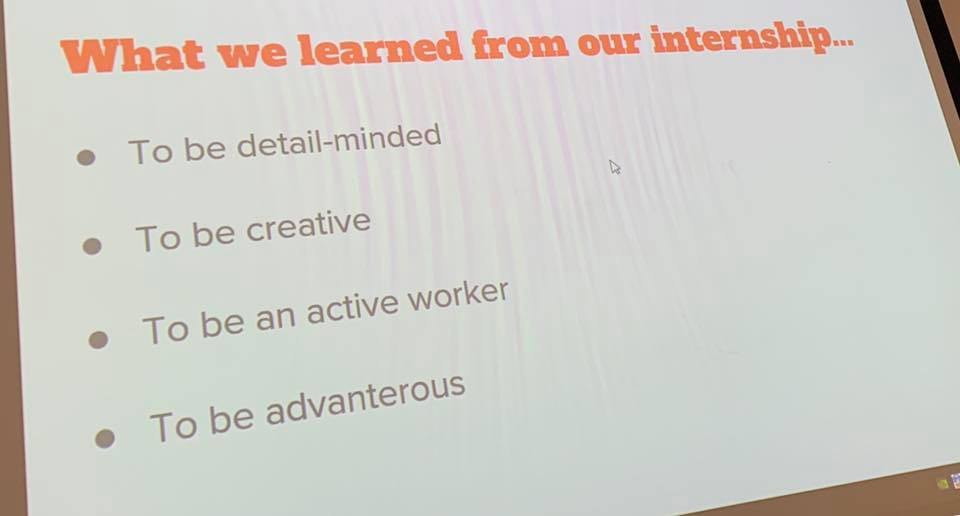Teaching Awards
2022
Outstanding Teaching Award 2021 (Faculty of Arts)
The Chinese University of Hong Kong
2019
Outstanding Teaching Award 2018 (Faculty of Arts)
The Chinese University of Hong Kong
2019
Outstanding Research Practice Project, China Arts Management Society
Project: ‘Creation, Play: The Joint Exhibition of Xiqu Posters’, with Hu Na.

Courses Taught

CUMT1001 Introduction to Cultural Management

CUMT2010 Music, Culture, and Outreach

CUMT3002 Performing Arts Management

CUMT3008 Curating and Organizing Arts Festival

CUMT4103 Internship
In this internship course, I have collaborated with over 50 renowned cultural institutions, including, but not limited to, Hong Kong Philharmonic Orchestra, Hong Kong Chinese Orchestra, Chung Ying Theatre Company, Hong Kong Children's Musical Theatre, City Contemporary Dance Company, Hong Kong Arts Festival, Music Office, etc.
To nurture a generation of insightful cultural practitioners, we are providing opportunities for students to get exposure to current cultural institutions. Students participating in this internship programme will have the opportunities to gain actual working experience, learn from in-field practitioners, understand how cultural institutions operate and try to survive. They are also provided with experiences to reflect upon the application theory to practice and to build network for future career development. Guidance will be given by both the organizations and the programme instructor.

CUMT4001 Integrated Studies in Cultural Management